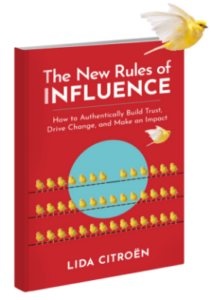
More and more, participants in my personal branding workshops are asking, “Do I need to be on Facebook to build my online personal brand?” It seems the risk and fear factor of Facebook is causing many to stay away from the platform. At the same time, others are seemingly resistant to sharing more than funny videos and breaking news links.
Is Facebook still a viable tool to build an online reputation or can it do more harm than good?
Facebook Basics: Friend
At its core, Facebook is a social platform for engaging with and building relationships with people you know. You “friend” others who you have a connection with, or with whom you want to be connected. Unlike LinkedIn, Facebook is not primarily a business networking tool, it promotes itself as a fun, playful, and emotion-laden community.
On Facebook, you have the option of who you connect with, who you choose to share your updates and information with, and who can comment on the items you share. You can also choose how much of your story and life you promote to others. Many people share a lot about their personal and professional lives, family happenings, and daily activities. Others choose to only comment on the posts of others, and still others resist posting all together, instead choosing “Facebook stalking” by reading their friends’ posts but not sharing their opinion.
You can share images, photos, and videos on Facebook, making it highly interactive and experiential. Where one person might share gruesome images of violent scenes, another posts smiling photos of adorable grandchildren. The experience for the rest of the community is quite different. The same applies to links to outside content — news stories, other social platforms, and posts that often share one’s opinions by sharing someone else’s content. The experience created for fellow users is often driven by our Facebook Friends.
With all the tools, buttons, features, and resources, Facebook has the possibility to create a fun, engaging, and compelling social experience for ourselves and those we invite into our community.
Consider whether Facebook will benefit your reputation or
put your personal brand at risk.
Facebook Basics: Foe
Because Facebook is mostly self-regulated by the online community and what is acceptable by you and your friends is subjective, the risk of mistakes, infractions, and damage to company and personal brands is high.
One small slip of the tongue, inappropriate “share”, or unbecoming tag can wreak havoc in one’s career, marriage, or community standing. Consider the colleague who announces congratulations on a peer’s upcoming pregnancy… when the woman had not disclosed this to her family or employer yet. Or the employee who brags about a successful client pitch when the competition had not been completely ruled out from the running (and now has unique insight into the opportunity). Once posted, an update, comment, photo, or link has been seen by many, and even it if is edited or removed quickly, the possibility that it lives in someone’s screen capture software is highly possible.
Many Facebook users are not careful about the “friends” they choose to build relationships with on the platform, leading to connections that mean them more harm than good. We see this often with young people, whose skills of discernment might not be highly refined.
Is Facebook Right for You?
As with every marketing channel and online opportunity, there is great potential to use Facebook as a tool to build your brand, engage with target audiences, and demonstrate the experience that is your offer and desired reputation. And there is risk.
In evaluating whether to use Facebook in your personal brand strategy, consider these questions:
- Am I clear about my personal brand goals? Do I have a clear idea of how I want to be perceived, and is that vision based on my authentic values and beliefs? If not, my Facebook persona might appear false or misleading. If I am clear about my personal brand and desired reputation, is Facebook part of the strategy for building my brand?
- Is my target audience on Facebook? If the people I want to reach, inform, and engage with are active on Facebook, it could be a missed opportunity for me to be absent from the site.
- Am I comfortable sharing the social side of my personality and brand? For many people, being social, casual, and accessible is not part of their brand. Because Facebook is highly social, this could cause conflict with the authenticity of their personal brand.
- Do I have the time and energy to engage with others on Facebook? As with any social networking platform, the key is to be engaged and engaging. If you won’t be able to dedicate the time and effort, your commitment to Facebook could backfire.
- Do I have clear boundaries and values for myself? A site like Facebook could test your values and boundaries. For instance, if you are passionate about political issues but your personal brand is not anchored in your politics, would you find yourself engaging in heated debates on Facebook that could cast a negative light on your reputation? Similarly, are your values clear to you so that you can know who to connect with and who not to connect with based on the brand you are building?
In deciding whether to join and become active on Facebook, consider that you have the ability to engage in the community at a level that feels comfortable to you. Not everyone has to post three times a day to find the platform rewarding, enjoyable, and productive in building an online personal brand.

